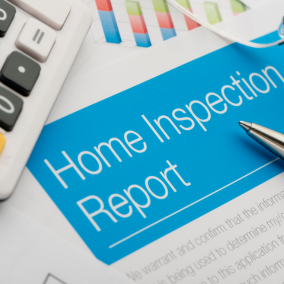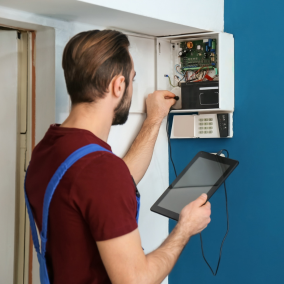Whether you’re buying or selling, the home inspection period can be stressful, but it doesn’t have to be as long as you know what to expect when you’re home inspecting! In this post, I’ll answer some Frequently Asked Questions from both the buyer and seller sides about inspections in our area.
FAQ 1: How does the inspection period work?
In our area, the Tampa Bay area consisting of Tampa, St. Pete, and Clearwater (or Hillsborough and Pinellas counties), the buyer chooses an inspection period timeframe on the offer contract, and though the buyer and seller can negotiate the number of days, most of the time the inspection period falls somewhere between 5-10 days with 7 days being pretty common. Either way, whether it’s 5, 7, 10, or 15, a number is chosen so there is a definite start and end date.
The most important thing to keep in mind is that during the inspection period, and let’s choose 7 days as an example, the buyer must complete all inspections (more on this in a moment), and the buyer and seller must come to an agreement on any other negotiations related to the inspection.
In other words, if a buyer wants to negotiate any repairs or credits, they must be agreed upon before the 7-day period is up. The repairs do not need to be made in the 7 days; they just need to be agreed upon in the 7 days. If credits are agreed upon in lieu of repairs, those will be given at the closing.

FAQ 2: Who pays for and attends the inspection? How long does it take?
The buyer pays for the home inspection. The buyer’s agent usually attends the inspection. The buyer can also attend, and it is a good idea to do so. The seller’s agent may or may not be there. The seller is usually not present.
Depending on the size of the home and the scope of the inspection, most inspections usually take at least 2 hours.
FAQ 3: What happens during the inspection?
Depending on the type of home, the inspector looks at major appliances, electric panels, plumbing, the roof, crawl spaces, windows, etc. The inspector checks for safety issues, makes sure everything is working, points out normal wear-and-tear, and lets the buyer know the general condition of the home.
FAQ 4: What will the buyer find out about the house?
The buyer will get a full inspection report, and it can be lengthy. If it’s overwhelming, look at the summary page where the inspector will list the bullet points of his findings. If you’re the buyer and went to the inspection, the inspector most likely showed these items to you. Good inspectors will point out items that are significant concerns in terms of systems, structure, and safety. They’ll also usually show you what is normal wear and tear and tasks you can do to properly maintain your home.
Since you, the buyer, paid for the inspection, you want an inspector who is willing to speak to you about any questions or concerns you have. Your agent, though familiar with homes and the inspection process, is likely not a licensed inspector or contractor and should not be advising you on those matters.

FAQ 5: What happens after the buyer gets the inspection report?
One of these four things is typically what happens. The buyer can ask for replacements or repairs based on the report’s findings. The buyer can ask for a credit to cover replacements or repairs based on report findings. The buyers can proceed without asking for anything. The buyers can cancel the contract for any reason (the buyer could cancel based on something that came up during the inspection, or they could simply decide they do not want to proceed.)
Yes, you read that correctly. In our area, the contract used most often is the As-Is contract. This means that if a buyer asks for replacements, repairs, or a credit, the seller can choose to honor, negotiate, or deny their request. At the same time, the buyer can choose to walk away for any reason. But no matter what, these decisions need to be made during the agreed upon inspection contingency that is in the contract.
FAQ 6: What other inspections might the buyer want or need?
In our area, a buyer will most likely need to get a 4-Point inspection. In fact, if a buyer is financing and will need home insurance, a 4-Point is usually required. The “4 points” are the HVAC, plumbing, electric, and roof. The buyer pays for it.
If you’re selling your house As-Is and the home fails any part of the 4 Point, this might impact a buyer’s ability to get insurance, in which case the buyer may not be able to close. Even cash buyers don’t want to deal with 4-Point items because these 4 items are integral to the house and are big ticket items to repair or replace. If the buyer were to walk away over a 4-Point issue, you’d most likely run into the same problems again with the next buyer. Therefore, it would be in your best interest as the seller to make these repairs even though the contract doesn’t require you to do so.
Buyers may also need or want a termite or WDO (wood destroying organism) inspection. Inspection companies can also do mold assessments and sewer scopes, though these are less common, and in certain areas, especially just north of us in Pasco County, a buyer may want to do a sinkhole inspection.

FAQ 7: Is there anything I need to do to prep for the inspection?
Yes, let’s start with sellers. The buyer will most likely be back in the house for at least part of the inspection, so make sure it looks like it did for the showing or open house that inspired the buyer to make an offer.
If you have any concerns or know of any damage or needed repairs, you can tend to the items BEFORE the home inspection so they’re non-issues. In fact, sellers can pay to have their home inspected before even going on the market so that there are no surprises and can address anything that comes up before the home is listed for sale. Most buyers will still want to pay for their own home inspection during the inspection period and have the right to do so.
Buyers, attend at least part of your inspection so that, like I said before, the inspector can point out his concerns. Also bring tape with you so you can measure for furniture. Walk through the house again (just to look – leave the inspecting to the professionals) and jot down any notes or take pics of spaces as you get inspiration for how you’ll make the space your own. Some sellers will be kind enough to let you have vendors come in during this time to give you estimates for improvements you want to make after you move in, like windows and floors. Doing this during the inspection is more polite than asking the seller to leave again at another time. Just be sure your agent lets the listing agent know.
In conclusion, the home inspection doesn’t need to be stressful. As you can see, there are protections built into the contract for both the buyer and seller. As long as you’re sticking to contract deadlines, are respectfully negotiating, and are looking for a win-win, it should be a smooth process that brings you one step closer to the closing table.

